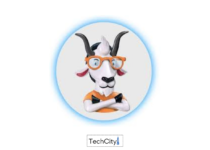Search4faces: The Ultimate Face Recognition Search Engine
In the digital age, where our online presence continues to grow, the ability to find and identify individuals based on their facial features has become increasingly important. Enter Search4faces, a powerful face recognition search engine that has been making waves in the world of online image searches. This comprehensive guide will delve into what Search4faces is, how it works, its potential applications, and the ethical considerations surrounding its use.
What is Search4faces?
Search4faces is a reverse face search engine that utilizes advanced facial recognition technology, artificial intelligence, and machine learning algorithms to find photos of individuals across various online platforms. Launched as a service primarily focused on Russian social media networks like VKontakte (VK) and Odnoklassniki (OK), Search4faces has since expanded its reach to include other popular platforms such as Instagram, TikTok, and Clubhouse.
The primary purpose of Search4faces is to help users find profiles and images of specific individuals based on a provided photo. This can be particularly useful for a variety of purposes, from reconnecting with long-lost friends to conducting background checks or verifying online identities.
How Does Search4faces Work?
The process of using Search4faces is relatively straightforward:
Upload a Photo: Users begin by uploading a clear, front-facing photo of the person they want to search for.
Select Search Parameters: Users can choose which social media platforms or databases they want to search within.
Initiate the Search: The system then analyzes the uploaded photo and compares it against millions of images in its database.
Review Results: Search4faces presents a list of potential matches, often including links to social media profiles where the images were found.
Refine Search: Users can further refine their search by adjusting parameters or uploading additional photos if needed.
The technology behind Search4faces is based on complex algorithms that can identify and match facial features with a high degree of accuracy. These algorithms consider various factors such as the distance between eyes, the shape of the nose, and other unique facial characteristics to find potential matches.
Applications of Search4faces
The versatility of Search4faces has led to its adoption in various fields and for numerous purposes:
Personal Use: Individuals can use Search4faces to find old friends, classmates, or family members they’ve lost touch with over the years.
Professional Networking: Professionals might use the tool to verify the identity of potential business partners or to find colleagues in their industry.
Dating and Relationships: Some users employ Search4faces to verify the authenticity of online dating profiles or to find more information about potential romantic interests.
Law Enforcement: While controversial, law enforcement agencies might use such technology to identify suspects or missing persons.
Journalism and Research: Investigative journalists and researchers can use Search4faces to verify sources or find additional information about individuals relevant to their work.
Identity Verification: Companies might use the tool as part of their background check process or to verify the identity of online customers.
Ethical Considerations and Privacy Concerns
While Search4faces and similar face recognition search engines offer powerful capabilities, their use raises significant ethical and privacy concerns:
Consent Issues: Many individuals whose photos appear in search results may not have given consent for their images to be used in this manner.
Potential for Misuse: The technology could be used for stalking, harassment, or other malicious purposes.
Data Privacy: There are concerns about how the data is collected, stored, and potentially shared with third parties.
Accuracy and Bias: Like all AI-driven technologies, there are concerns about the accuracy of results and potential biases in the algorithms.
Legal Gray Areas: The use of such technology often operates in legal gray areas, with laws varying significantly between jurisdictions.
These concerns have led to ongoing debates about the regulation and ethical use of facial recognition technologies like Search4faces.
Comparison with Other Face Recognition Search Engines
Search4faces is not alone in the facial recognition search engine market. Other notable players include:
PimEyes: Known for its ability to search the open web for facial matches.
FindClone: Another Russian-based service that specializes in searching VKontakte.
TinEye: A reverse image search engine that can find exact matches of images across the web.
Google Images: While not specifically a face search engine, it can be used to find similar images.
Compared to these alternatives, Search4faces stands out for its focus on social media platforms and its ability to search multiple networks simultaneously. However, each tool has its strengths and weaknesses, and the best choice often depends on the specific use case.
Using Search4faces Responsibly
If you decide to use Search4faces or similar tools, it’s crucial to do so responsibly:
Respect Privacy: Only search for individuals when you have a legitimate reason to do so.
Verify Results: Remember that search results may not always be accurate or up-to-date.
Use Multiple Sources: Don’t rely solely on Search4faces for important decisions. Cross-reference information from multiple sources.
Stay Informed: Keep up with the latest privacy laws and regulations in your jurisdiction.
Be Transparent: If you’re using the tool professionally, be upfront about your use of facial recognition technology.
The Future of Facial Recognition Search Engines
As technology continues to advance, we can expect facial recognition search engines like Search4faces to become even more powerful and widespread. Future developments may include:
Improved Accuracy: Advancements in AI and machine learning will likely lead to even more accurate search results.
Broader Database Coverage: Search engines may expand to cover an even wider range of online platforms and databases.
Real-Time Searching: We may see the development of real-time facial recognition capabilities integrated with live video feeds.
Stricter Regulations: As the technology becomes more prevalent, we can expect to see more comprehensive regulations governing its use.
Integration with Other Technologies: Facial recognition may be combined with other biometric data or AI technologies for even more powerful identification capabilities.
Conclusion
Search4faces represents a significant advancement in facial recognition technology, offering powerful search capabilities that were once the realm of science fiction. While its potential applications are vast and varied, it’s crucial to approach such technology with a clear understanding of its limitations and the ethical implications of its use.
As we continue to navigate the complex landscape of digital identity and online privacy, tools like Search4faces will undoubtedly play an increasingly important role. Whether you’re a curious individual, a professional researcher, or simply someone interested in the latest technological advancements, understanding the capabilities and limitations of facial recognition search engines is crucial in our interconnected digital world.
Ultimately, the responsible use of such technology requires a delicate balance between leveraging its benefits and respecting individual privacy rights. As Search4faces and similar tools continue to evolve, it will be up to users, developers, and policymakers to ensure that this powerful technology is used in ways that benefit society while protecting fundamental rights and freedoms.
FAQs
Is Search4faces legal to use?
The legality of Search4faces varies by jurisdiction. While it’s generally legal for personal use in many countries, commercial use may be subject to data protection laws.
How accurate are the results from Search4faces?
Search4faces uses advanced algorithms, but accuracy can vary. Factors like image quality, lighting, and database coverage can affect results.
Can I remove my photos from Search4faces?
Search4faces doesn’t host images directly. To remove photos, you’d need to contact the original platforms where your images are posted.
Is Search4faces free to use?
Search4faces offers both free and paid options. Basic searches are often free, while more advanced features may require a subscription.
Can Search4faces find someone from an old or partial photo?
While possible, the accuracy of results decreases with older or partial images. Clear, recent, front-facing photos typically yield the best results.
Does using Search4faces raise privacy concerns?
Yes, using facial recognition technology like Search4faces does raise privacy concerns, including issues of consent and potential misuse of personal data.



